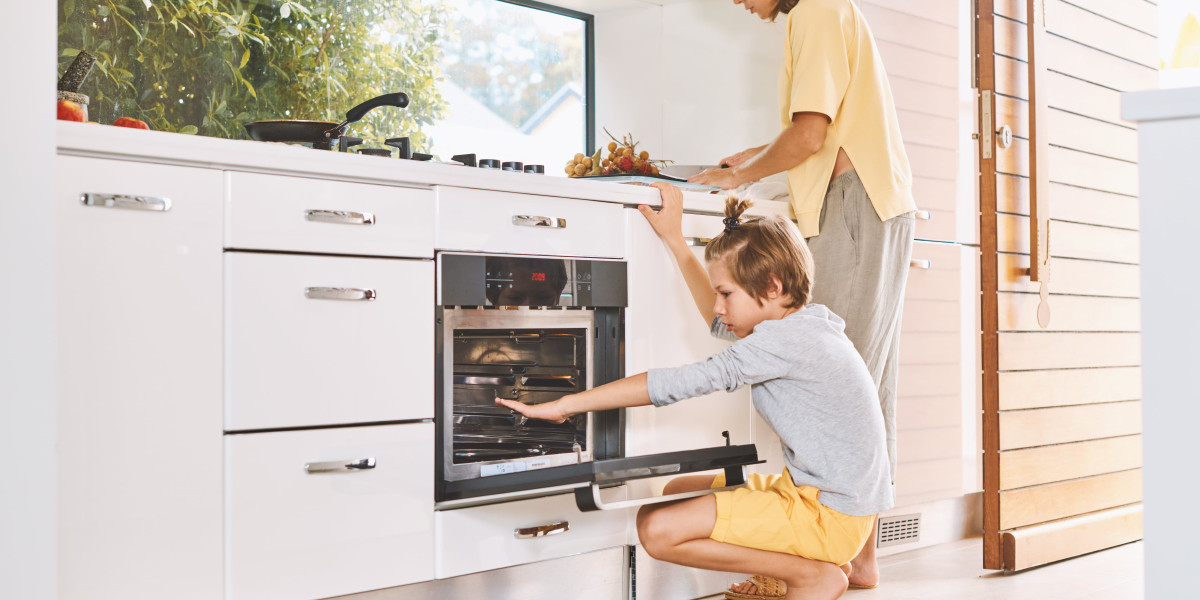Understanding Built-in Ovens and Hobs: The Perfect Kitchen Combination
As modern kitchen areas evolve, built-in appliances are becoming significantly popular for both performance and aesthetic appeals. Amongst these appliances, built-in ovens and hobs stand out as vital parts for any culinary enthusiast or home cook. This article explores the advantages, functions, and considerations surrounding built-in ovens built in and hobs. It likewise addresses typical questions, providing a detailed guide to these kitchen essentials.
What are Built-in Ovens and Hobs?
Built-in ovens are integrated into kitchen cabinets, developing a sleek, seamless look. They are available in different types, consisting of standard, convection, and steam ovens, each catering to different cooking techniques. Hobs, on the other hand, are the cooking surface areas that incorporate with the kitchen countertop. They can be gas, electric, or induction, enabling cooks to choose based upon their cooking design and energy choice.
Benefits of Built-in Ovens and Hobs
- Space-Saving: Built-in models take full advantage of kitchen area by eliminating the need for freestanding units, producing an open and airy environment.
- Visual Appeal: Their smooth design contributes to a modern, structured look in the kitchen.
- Enhanced Functionality: Built-in ovens typically include innovative cooking technology, providing a range of features like self-cleaning and smart controls.
- Modification: Manufacturers offer a variety of surfaces and designs, enabling homeowners to customize their appliances to match their kitchen decoration.
Types of Built-in Ovens
1. Conventional Ovens
Standard ovens use radiant heat from the bottom and can be perfect for baking.
2. Convection Ovens
Convection ovens have a fan that circulates hot air, guaranteeing even cooking. They lower cooking time and are perfect for roasting meats or veggies.
3. Steam Ovens
Steam ovens use wet heat to cook food, preserving nutrients and flavors. They are becoming increasingly popular among health-conscious cooks.
4. Microwave Ovens
These ovens provide quick heating and cooking and serve numerous functions, from reheating leftovers to baking.
Types of Hobs
1. Gas Hobs
Gas hobs utilize natural gas or lp for cooking. They provide instant heat control, making them a preferred among professional chefs.

2. Electric Hobs
Electric hobs have solid or ceramic surface areas that warm up through electric coils. They are easy to tidy however might take longer to heat than gas designs.
3. Induction Hobs
Induction hobs use electromagnetic energy to directly heat pots and pans, providing rapid heating and energy efficiency. They cool down rapidly and offer a safer cooking experience.

Factors to Consider When Choosing Built-in Ovens and Hobs
When selecting built-in ovens and hobs, a number of aspects should be thought about:
1. Space Limitations
Procedure the readily available space in your kitchen to ensure that the appliances will fit flawlessly into the kitchen cabinetry.
2. Cooking Style
Consider your cooking practices. If you often bake, a convection oven may be perfect. On the other hand, induction hobs are terrific for security and performance.
3. Spending plan
Prices differs significantly based upon functions and brands. Setting a budget assists limit the choices.
4. Energy Source
Identify whether you desire gas or electric appliances. This choice can affect cooking efficiency and utility costs.
5. Visual appeals
Select finishes and designs that match your kitchen's style. Stainless-steel is a popular choice for a contemporary appeal.
Comparison of Built-in Ovens and Hobs
| Feature | Built-in Oven | Built-in Hob |
|---|---|---|
| Type | Convection, steam, etc. | Gas, Hotpoint Newstyle Electric Double Oven - Sleek Black, induction |
| Cooking Versatility | High | Moderate to high |
| Cleaning up Ease | Differs by design | Generally simple to tidy |
| Installation Style | Integrated in cabinetry | Flush with countertop |
| Energy Efficiency | Varies by design | Induction generally most effective |
Frequently Asked Questions About Built-in Ovens and Hobs
1. Are built-in ovens more pricey than freestanding models?
Yes, built-in ovens normally include a greater price due to their design and installation requirements. However, they frequently use more sophisticated functions.
2. Can I change my existing freestanding oven with a built-in model?
Yes, it's possible to replace a freestanding oven with a built-in design, but you may require to make changes to your cabinetry and kitchen layout.
3. What maintenance do built-in ovens and hobs need?
Regular cleaning is necessary. Many Bosch Serie 4 Built-in Oven with 3D Hotair ovens included self-cleaning features. It's likewise important to keep the hobs devoid of spills and grease.
4. Are induction hobs safe for families?
Induction hobs are thought about more secure than gas or electric options due to the fact that they just warm the cookware, minimizing the threat of burns or accidents.
5. How can I maximize the efficiency of my built-in oven and hob?
To take full advantage of effectiveness, always preheat the oven when needed, use the appropriate size pots or pans on the hob, and consider using the residual heat from your hob after cooking.
Built-in ovens and hobs supply numerous advantages, making them popular options for contemporary kitchen areas. Their space-saving styles, advanced functions, and aesthetic appeal contribute to their high demand. By thinking about aspects like area, cooking design, and budget, property owners can pick the best mix of appliances that best match their culinary requirements. Whether through gas, electric, or induction hobs, and a variety of oven types, the ideal built-in kitchen appliances can improve the cooking experience while elevating the total visual of the kitchen.



